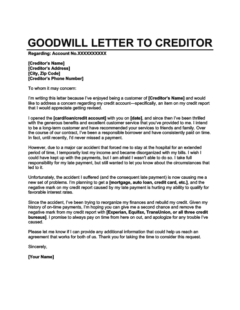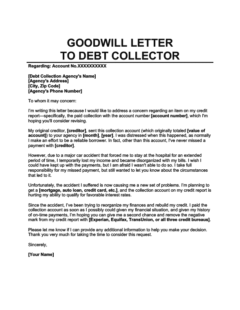If you’ve got a collection account staining your credit report, then your first instinct might be to pay the debt off as quickly as possible so that it stops bringing your credit score down. Unfortunately, credit repair isn’t always as simple as that.
The truth is that paying off a collection account isn’t guaranteed to improve your score. Before you commit to paying, you need to understand the circumstances under which it will (and won’t) help your credit, as well as what your other options are.
Table of Contents
- Will paying off collections help my credit score?
- How long will it take for my credit score to improve after I pay off collections?
- How much will my credit score increase after I pay off my collections?
- Should I pay off collections if it won’t benefit my score?
- How to remove paid collections from your credit report
- How to improve your credit score after paying off collections
Will paying off collections help my credit score?
Paying off collections can help your credit score, but not always. Whether or not it will depends on three factors:
1. The scoring model that your lender uses
You might be surprised to learn that you have more than one credit score. You actually have several, because there are multiple “models” that companies use to calculate scores. When lenders run your credit, they’re free to use whichever model they like.
Newer scoring models (like FICO 9, VantageScore 3.0, and VantageScore 4.0) ignore collection accounts that have been paid. “Ignoring” them means they stop penalizing them, so in those models, paying off a collection account will help your score.
Conversely, earlier scoring models still count paid collections as negative marks, which means paying them won’t benefit your score. 1 2
2. The amount you owe
Newer FICO models also ignore “small-dollar nuisance” collection accounts that were originally worth less than $100. 3 This means that for small collections, you might not see an increase in your score after paying them off.
3. Whether you pay in full or settle your debts
Although newer scoring models overlook fully paid collection accounts, this doesn’t apply to debts that you paid off as part of a debt settlement agreement (meaning you negotiated with your creditor or debt collection agency and they agreed to accept less than the full amount you owed).
These debts will appear as “settled” on your credit report and will continue to bring down your score.
How long will it take for my credit score to improve after I pay off collections?
Your credit score changes any time that your credit report is updated. Assuming that the circumstances are right for you to see any improvement at all, you can expect to see it as soon as your creditor or debt collectors notify the credit bureaus that your account has been paid. This usually takes 30–45 days, but the exact timeline can vary. 4
All collection accounts fall off your credit report after 7 years
Like most other negative information, collection accounts can stay on your credit report for up to 7 years, even after you’ve paid them. 5 However, their effect on your credit score will diminish over time, regardless of which model your lender is using.
How much will my credit score increase after I pay off my collections?
The number of points your credit score will increase by when you pay off a collection account depends on your credit history.
If you had a good credit score before having an account sent to collections, then the damage collections caused your credit would have been greater in the first place. Paying them will reverse this effect, meaning your score will probably increase more if your credit took a greater hit initially. 6
On the other hand, if other negative items are also bringing your score down, then you may not notice much of an improvement after you pay off your collection account.
How many points does a collection lower your credit score?
As mentioned, the exact number of points that a collection account will take off your credit score depends on what your credit history was like to begin with. You’ll lose more points if you had a good credit history and score.
For example, according to the Consumer Financial Protection Bureau, someone with a credit score of 680 might see their score drop by 45–65 points when they incur a collection account, whereas someone with a higher score of 780 could see their score drop by 105–125 points. 7
Should I pay off collections if it won’t benefit my score?
Yes, you should pay off your collection accounts if you can. Doing so has a number of benefits, even if it won’t benefit your score in the model that your lender is using.
Other benefits of paying off collection accounts
The benefits of clearing your debts in collection include:
- Protection from lawsuits: Until your debt passes a time limit called the “statute of limitations,” your creditor or debt collection agency can sue you for not paying. This could result in the courts issuing a judgment against you, which would entitle the debt collectors to garnish your wages or seize your property. Paying off the debt eliminates the risk of this happening.
- Less to pay in interest: Your debt will continue to accumulate interest when it’s in collections. This means that the sooner you pay it, the less you’ll have to pay overall.
- No more calls from collection agencies: Debt collectors can be persistent, and unless you specifically tell them to stop contacting you, they’ll probably keep calling and sending you letters until you’ve paid or reached an agreement with them. Simply paying the debt will get them off your back for good (although you should still make sure that your debt collector is legit first).
- Better odds of loan approval: Even if your prospective lender is using an older scoring model that doesn’t ignore paid collections, a collection account that’s shown as paid looks better to lenders than one that’s unpaid. In the case of many conventional mortgages, lenders won’t even consider giving you a loan until your outstanding debts are paid. 2
How to remove paid collections from your credit report
In general, the only way to remove a paid collection account from your credit report is to wait for it to fall off naturally after 7 years. However, there are two approaches you can try to expedite the process—they’re not particularly likely to work, but can still be worth a shot.
1. Write a goodwill letter
When you write a goodwill deletion letter (or forgiveness letter), you’re essentially asking your creditor or debt collector to remove a legitimate negative mark out of kindness.
This approach is more likely to work if your original creditor still owns the debt and simply hired one of the many debt collection companies out there to recover it on their behalf (as opposed to selling your debt to a debt collector). It also helps if you don’t have a history of late payments and there’s a good reason for why you took so long to pay off this account, such as a medical emergency that left you short of funds.
In your goodwill letter, you should do the following:
- Provide your details and state which account you wish to remove from your credit report
- Explain your situation and provide evidence to back up your claims
- Outline your plan to prevent similar incidents from happening in the future
- Express gratitude and state your intention to maintain a good relationship with the creditor

Goodwill Letter to Creditor
Use this goodwill letter template to ask for a goodwill deletion from one of your creditors. Remember to customize it to your circumstances for the best possible chance of success.

Goodwill Letter to Debt Collector
Use this letter template to ask for a goodwill deletion from a debt collection agency. This is less likely to work than a letter to your original creditor.
Note that creditors and collectors aren’t obligated to respond to goodwill letters, so you may need to follow up with them a few times.
If you haven’t paid your debt yet, try pay for delete
If your debt is relatively big or old, you can try asking your creditor or debt collector to remove the collection account from your credit report in exchange for payment. This practice is known as pay for delete. Although this approach also isn’t guaranteed to work, there’s usually no harm in trying.
2. Hire a credit repair company
Your other option for getting a paid collection account off your credit report is to get debt collection help from a credit repair company. Although they won’t be able to do anything that you couldn’t do yourself, their experience and persistence may be enough to get the job done if you haven’t had any luck negotiating with your creditor or debt collectors.
Before going this route, make sure to research the company you’ve chosen. Avoid companies that make you offers that seem too good to be true or ask for a large payment upfront, and realize that whatever company you choose, there’s no guarantees.
How to improve your credit score after paying off collections
Paying off your collections is a good way to get your credit back on track after missing payments, but there are other steps you can take to further your progress.
Follow these tips to continue improving your credit score and make yourself more attractive to lenders:
- Catch up on past-due accounts: If you have any other overdue debts, your first priority should be to pay them off or come to an agreement with your creditor so that they won’t also be charged off and sent to collections.
- Monitor your credit reports: One of the most important parts of improving your credit is monitoring your credit reports and scores. Credit monitoring allows you to spot mistakes in your credit report and watch your progress over time.
- Keep your credit card balances low: One of the main factors involved in the calculation of your credit score is your credit utilization rate (also known as your debt-to-credit ratio), which is how much of your credit you’re using. Limiting your spending to at least under 30% of your credit limit will benefit your credit score and show lenders you’re financially responsible.
- Only apply for new credit when you need it: New credit applications generally trigger hard inquiries, which cause a temporary drop in your credit score. In addition, having more debt to keep track of can make it harder to keep on top of your payments and budget effectively, so you’re better off only applying for credit when you need it.
Takeaway: How paying off collections will affect your credit score depends on your credit history and the scoring model used.
- Newer credit scoring models ignore paid collections, so your credit score may improve after you pay collections if you’re using FICO 9, VantageScore 3.0, or VantageScore 4.0.
- With older scoring models, paying off collections can cause an increase, decrease, or no change at all in your credit score, depending on your credit history and the age of the debt.
- Paying off collections is usually a good idea even if it won’t improve your score. Doing so may also improve your chances of approval for loans in the future.
- Other benefits of paying off your collections include protection from lawsuits, less to pay in interest, and freedom from debt collectors.
- If you want to remove the collection account from your credit report, you can send a goodwill letter to your creditor or debt collector or get help from a credit repair company.







